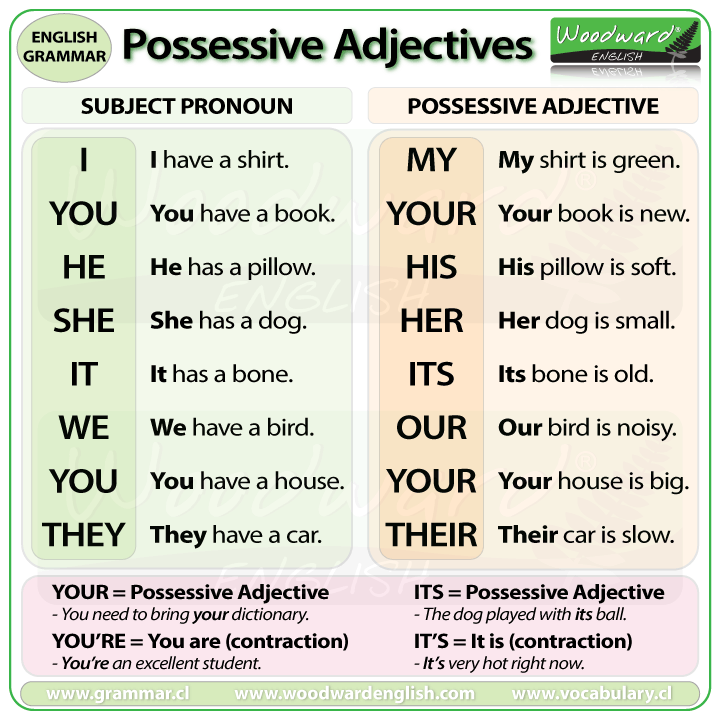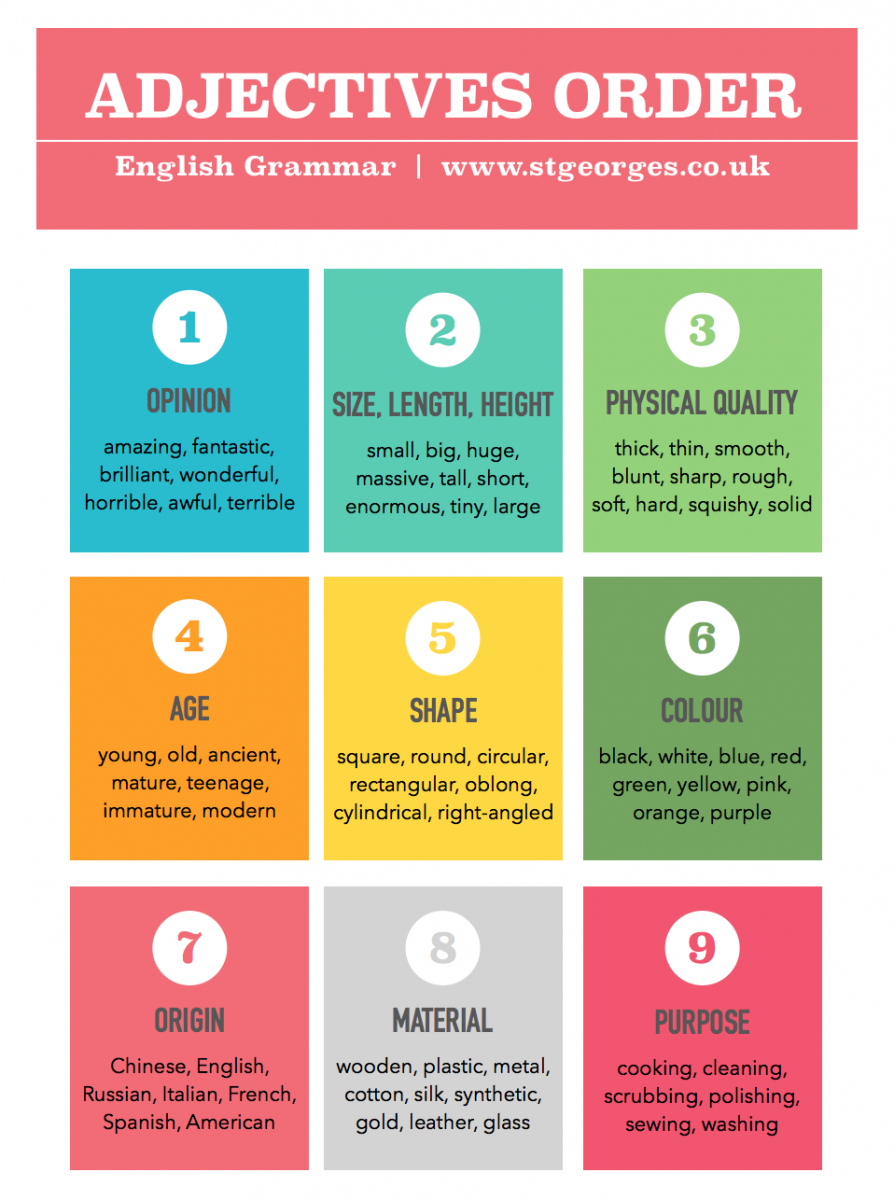Antwort What are adjectives in grammar? Weitere Antworten – What are adjectives and examples
An adjective is a word that modifies or describes a noun or pronoun. Adjectives can be used to describe the qualities of someone or something independently or in comparison to something else. Examples: Adjectives in a sentence I like old houses. The boy is tall and skinny.Examples of adjectives
- They live in a beautiful house.
- Lisa is wearing a sleeveless shirt today. This soup is not edible.
- She wore a beautiful dress.
- He writes meaningless letters.
- This shop is much nicer.
- She wore a beautiful dress.
- Ben is an adorable baby.
- Linda's hair is gorgeous.
The different types of adjectives are:
- Possessive Adjectives.
- Interrogative Adjectives.
- Demonstrative Adjectives.
- Compound Adjectives.
What is an adjective in German grammar : An adjective is an attribute that describes a noun. The word comes from the Latin verb “adicere”, which means “to add” or “to append.” In German, we also call them “Wie-Wörter” (How-words) because they describe HOW something is.
How do you identify adjectives in a sentence
Adjectives are usually placed before the nouns they describe, as in the examples, tall man and easy assignment, above. Adjectives may also follow the noun they describe. Like nouns, adjectives are often recognizable by their suffixes. Endings such as -ous -ful -ish -able usually designate adjectives.
What are the 20 examples of adjectives : The 22 Most Common English Adjectives
- Good. This coffee is good. I am good.
- Big. This shirt is very big.
- Small. He wants a small sandwich.
- Hot. The tea is hot.
- Cold. The food is cold.
- Expensive. The supermarket is expensive.
- Difficult. This game is difficult, I don't understand the rules.
- Easy. These exercises are very easy.
The 22 Most Common English Adjectives
- Good. This coffee is good. I am good.
- Big. This shirt is very big.
- Small. He wants a small sandwich.
- Hot. The tea is hot.
- Cold. The food is cold.
- Expensive. The supermarket is expensive.
- Difficult. This game is difficult, I don't understand the rules.
- Easy. These exercises are very easy.
Adjectives can be broken into different categories including comparative, superlative, predicate, compound, possessive, demonstrative, proper, participial, limiting, descriptive, interrogative, attributive, and distributive adjectives.
What are the 7 types of adjectives with examples
Types of Adjectives
| S.No. | Adjective Types/ Kinds | Examples |
|---|---|---|
| 1 | Descriptive Adjective | Large, beautiful, careful, hateful etc. |
| 2 | Numeral Adjective | Five, few, many, several, first etc. |
| 3 | Quantitative Adjective | Some, much, little, any, half, whole |
| 4 | Demonstrative Adjective | This, that, these, those, such |
In German grammar, there are three types of adjectives: predicative, adverbial and attributive. Predicative adjectives and adverbs do not change their form, while attributive adjectives change their ending depending on the noun they modify.There are a total of 8 types of Adjectives in English grammar namely Descriptive adjective, Numeral adjective, Quantitative adjective, Demonstrative adjective, Interrogative adjective, Possessive adjective, Proper adjective, and Exclamatory adjective.
Adjectives are usually placed before the nouns they describe, as in the examples, tall man and easy assignment, above. Adjectives may also follow the noun they describe. Like nouns, adjectives are often recognizable by their suffixes. Endings such as -ous -ful -ish -able usually designate adjectives.
How do you tell if a word is an adjective : Once you have that in mind think about the main questions that each of these words answers an adjective answers what kind how many and which the adverbs on the other. Hand. Answer how when and where
What are 100 examples of an adjective : A-D List of Adjective Words
| adorable | adventurous | aggressive |
|---|---|---|
| amused | angry | annoyed |
| annoying | anxious | arrogant |
| ashamed | attractive | average |
| awful | bad | beautiful |
What are the 56 adjectives
They are: able, accepting, adaptable, bold, brave, calm, caring, cheerful, clever, complex, confident, dependable, dignified, empathetic, energetic, extroverted, friendly, giving, happy, helpful, idealistic, independent, ingenious, intelligent, introverted, kind, knowledgeable, logical, loving, mature, modest, nervous, …
A-D List of Adjective Words
| adorable | adventurous | aggressive |
|---|---|---|
| condemned | confused | cooperative |
| courageous | crazy | creepy |
| crowded | cruel | curious |
| cute | dangerous | dark |
German adjectives come before nouns and are declined; their ending changes according to the case of the sentence and the gender and number of the noun they're describing. When used before a noun, they are called attributive adjectives (attributives Adjektiv). Examples: Auf dem Marktplatz steht ein verrückter Clown.
How to identify an adjective in a sentence : An adjective is a part of speech that modifies a noun or pronoun. Adjectives usually tell what kind, how many, or which about nouns or pronouns. An adverb is a part of speech that modifies a another adverb, a verb, or an adjective. It is often recognized by the suffix -ly at the end of it.








